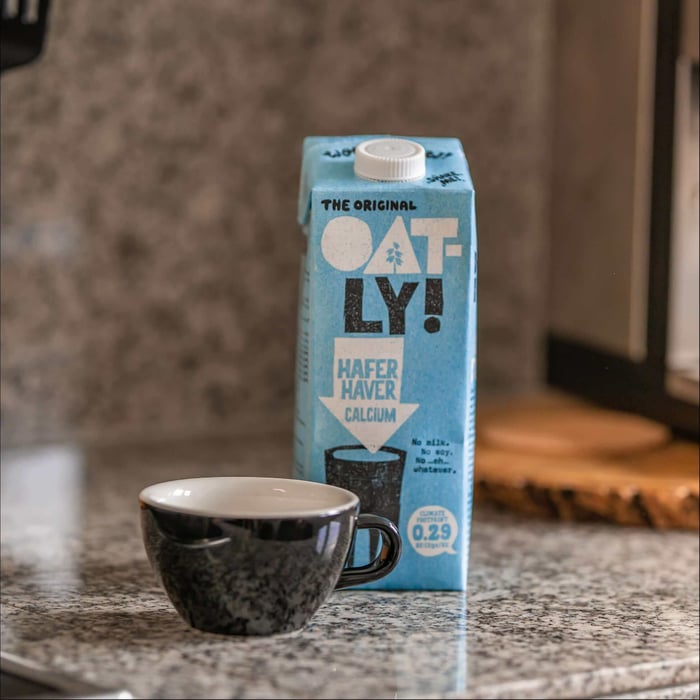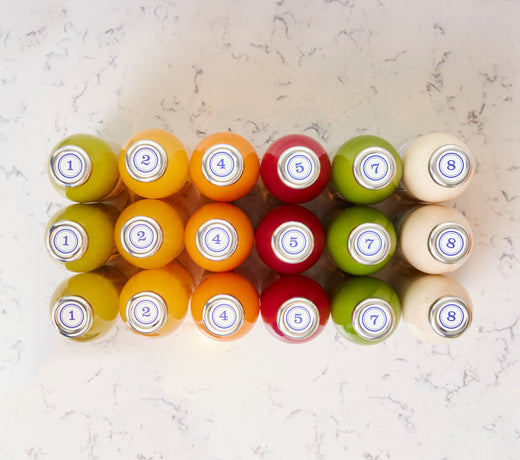The problem with plant milks
Right I need to caveat this with: please don’t hate me as I proceed to ruin your morning oatly flat white (as I have done recently for so many people on the internet).
@grackingswell
Last week a podcast episode of mine aired called ‘The Problem with Plant Milks’ (listen to it here) in which I interviewed my friend and fellow practitioner Cait Mizzi CNP. I can only describe the aftermath of the episode as overwhelming, amazing and just a little daunting. It was my first foray into ‘being uncomfortable online,” because let me tell you this: people really don’t like it when you tell them that something they love is bad for them. Sure, if I’d come out saying that deep fried chips are bad for you no one would have batted an eyelid.
But: “a latte made with Oatly Barista is the toxic and inflammatory equivalent of a medium serving of french fries?” Oh boy.
Oatly even commented on one of my Instagram posts (and I didn’t tag them in a single story, the uproar and the huge wave of people ditching their barista oat milk was enough to make them stand up and listen).
Sadly they hugely missed the point in their comment, and clearly haven’t listened to the podcast yet. So, without further ado, I give you: The Problem with Plant Milks.
And before I go on, it’s not just me talking about this. It’s in the literature if you care to read it (i.e. medical studies), Mark Hyman MD is shouting about it, as is Dr Cate Shanahan and many others in the Functional Medicine / Nutritional therapy space. I’ve also popped some other resources down below in case you want to have a browse…
So, if you’ve read the ingredients of your favourite barista plant milk recently you might have seen that it has rapeseed oil in, or sunflower seed oil. Sounds pretty natural, so why is it a problem?
Omega 3 and Omega 6
The first thing to discuss is the balance of omega 3 to omega 6 in seed oils such as:
- Rapeseed (canola oil)
- Cottonseed oil
- Sunflower oil
- Grapeseed oil
- Safflower oil
We need both omega 3s and omega 6s to be healthy, but we need them in a ratio of anything from 1:1 to 1:4 omega 3 to omega 6. Alarmingly we are now seeing ratios of 1:40, that’s 1 omega 3 to every 40 omega 6. Research suggests that our hunter-gatherer ancestors consumed omega-3 and omega-6 fats in a ratio of roughly one to one. So pretty much the same amount of Omega-3 to the same amount of Omega-6. Now, our modern hunter-gatherers, the tribes that still exist in 2021 on Earth of which very few are left, still mimic those ratios and they do not have modern inflammatory diseases like heart disease and cancer and diabetes.
The balance between these fats is so important because our cells are made of fat, our brains are made of fat (a specific balance of fats) and if our fat cells are constantly flooded with omega-6 fatty acids, the cellular membranes do not operate in the same way. They might not be able to receive and excrete other molecules in the way that they are usually supposed to, they may not have the fluidity of movement that they are supposed to, they may not proliferate the way that they are supposed to. We see that fat cells actually do not divide properly when we have a specific imbalance of Omega-3 to omega-6.
Inflammation
It is also a problem because too many omega 6s, as found in nuts, seeds, grains and seed oils, drive inflammation in the body (that’s a simple scientific fact). Omega 3s, on the other hand, are really protective of these inflammatory cascades and pathways which is why, as a clinician, I often give high dose omega 3 supplements to people suffering from inflammatory conditions like eczema, allergies, acne, joint pain, PMS, endometriosis etc.
It’s also crucial to remember that inflammation is at the heart of every single ailment, illness and chronic disease in western society. Decrease your inflammation, feel better - it’s as simple as that.

Loved it!
"I've done a few juice cleanses and this was by far my favourite. The almond drink at the end of the day was delicious and something to look forward to. I finished it yesterday and feel great today. Just what I needed!"
- The Signature Cleanse
Now, if you do some googling, you’ll see that rapeseed oil, which is the most widely used seed oil in all UK products from plant milks to crackers, to crisps, to ANY food you’d eat in a restaurant, to pre-made pasta sauces etc, has actually quite a favourable ratio of omega 3 to omega 6 fatty acids. So actually using some cold-pressed, un-processed rapeseed oil on a salad for example, isn’t a massive issue. But, it’s not just about the balance of these fats, it’s about how they’re handled, treated and stored.
So rather than the specific ratio of O3 to O6, the really concerning issue is the ability of these seed oils, as used in plant milks, to become rancid or inflammatory due the way they’re processed.
Unsaturated and polyunsaturated fats (what we know as vegetable oils, but are actually seed oils), are very unstable and they degrade and become rancid in the presence of:
- Light
- Oxygen
- Heat
- Pressure
I would just like to point out here that our bodies run at 37 degrees (pretty hot), and are full of oxygen…. So the problem isn’t just what’s happening in the plant milk manufacturing plants, storage containers, and eventually when they get to our homes, it’s actually what happens inside our bodies too.

Saturated fats, on the other hand (butter, coconut oil and other animal fats) are stable and safe, and this comes down to their molecular structure. With omega 3s, the first double bond occurs on the third carbon atom and with omega-6s, the first double bond occurs on the sixth carbon atom. This is important! Because of this they operate differently and the body utilises them differently too. They are more stable and they have different roles in the body. Unstable fats damage our cells and create inflammation, which is why saturated fats and olive oil are much safer to cook with than rapeseed, sunflower etc.
And just anecdotally, I’m seeing a lot of my patient population and people online who have ditched plant milks and the other sources of polyunsaturated fatty acids like rapeseed and sunflower seed oil, heal from condition of acne and breakouts (even though this is, of course, well researched too as acne and spots are just inflammation).
I haven’t even begun to mention hormones yet! But if you suffer from PMS, painful periods, endometriosis etc then you might also want to be a food detective and start removing these toxic, inflammatory oils from your diet. Some people find that incorporating a press juice cleanse in their diet can also help reset their system and reduce inflammation.
It’s safe to say that this is an area of health that is wildly underestimated. We are all walking around assuming that plant based diets made up of grains, legumes, plant milks, vegetable oils and margarines are firstly doing our bodies good and secondly saving the planet. Well I hate to tell you that it’s not true. All of these foods are high in omega 6s, and cost our earth a huge amount to produce. Monocropping, genetically modifying, pesticide spraying…
And to answer the top two most frequently asked questions from those that have listened and engaged with the episode I have created a guide on which plant milks are safe to consume, and which oils are safe to cook in alongside recommendations for cold pressed juices that can help balance your diet.
Guide to healthier Plant Milks
The original STATE OF MIND podcast episode
Cait Mizzi’s Instagram deep-dive Insta Live
And one final note, rapeseed oil used to be used as lubricant for machinery until it was genetically modified enough to be deemed "safe" for human consumption...
You know where to find me if you have any further questions…. @gracekingswell
A couple of good reads:
https://chriskresser.com/how-too-much-omega-6-and-not-enough-omega-3-is-making-us-sick/
https://www.alexfergus.com/blog/pufa-s-the-worst-thing-for-your-health-that-you-eat-everyday
 Why Presscription?
Why Presscription?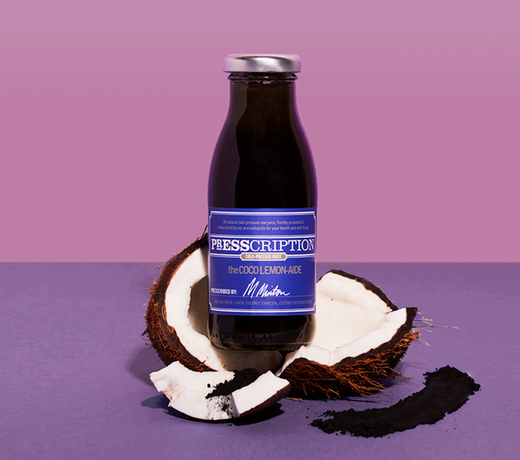 Why Cleanse?
Why Cleanse?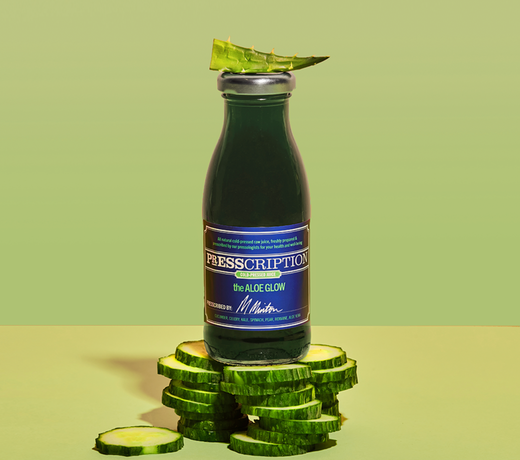 Cleansing Tips
Cleansing Tips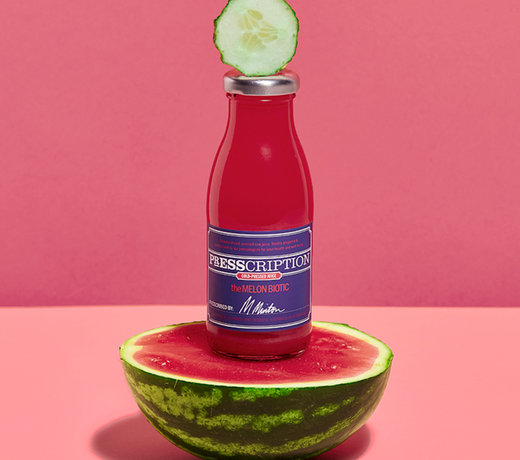 What's Pressing?
What's Pressing?